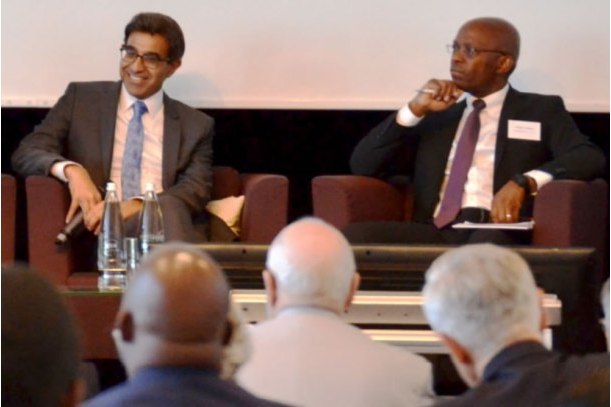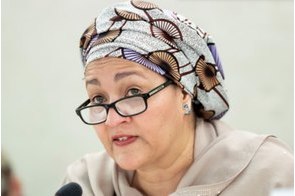Innovative financing as key to closing SDG funding gap

Summary
One of the ways Access Bank has demonstrated its leadership in sustainable finance is through its green bond issuance.
Prior to the outbreak of COVID-19, developing countries were grappling with an annual funding gap of $2.5 trillion to achieve the Sustainable Development Goals (SDGs). Globally, the funding requirement for achieving the 2030 Agenda for Sustainable Development was estimated at between $5-$7 trillion. Then, the COVID-19 outbreak became a pandemic, causing a dramatic fall in global investment.
As a result of the COVID-19 crisis, the United Nations estimates that private flows, which occupy the largest portion of total financial flows into developing countries, will decrease by up to 40 per cent in 2020, compared to the 2019 value of $1.54 trillion. Consequently, SDGs financing, except for health, is also declining this year.
As a result, key stakeholders have been calling for innovative financing to achieve the SDGs. Executive Director, Risk Management Division at Access Bank Plc, Gregory Jobome, reiterated the imperative of mobilising innovative financing mechanisms to close national funding gaps for SDGs in the aftermath of COVID-19. He stated this while addressing delegates during the 1st World Development Finance Forum (WDFF), which held on September 29-30, 2020.
The forum, held mostly virtually because of COVID-19 restriction protocols, was co-organised by the European Organisation for Sustainable Development (EOSD) and its partners. During his address on the first day of the event, Jobome called for the adoption of a range of non-traditional mechanisms to raise additional funds for sustainable development. He also emphasised the importance of building synergies with governments, regulators and commercial banks to enhance the resilience of national and regional economies, as well as the financial sector.
Recognising the difference in the capacities of advanced and developing countries to cope with the effects of COVID-19, the Access Bank Executive Director said working in partnerships would ensure the countries with weakened capacity to response would be supported by those with stronger capacity. "This is one way to truly optimise our response capacity and make the most of globalisation,” Jobome noted.
One of the ways Access Bank has demonstrated its leadership in sustainable finance in Nigeria and Africa is through its green bond issuance. The N15 billion ($41.3 million) green bond, the first-ever Climate Bonds-certified corporate green bond in Africa, was listed on the FMDQ OTC Securities Exchange and the Nigerian Stock Exchange (NSE), and subsequently cross-listed on the Luxembourg Stock Exchange (LuxSE). The green bond is an innovative financing solution that is helping to finance sustainable development in Nigeria.
The WDFF 2020 brought together government officials and various stakeholders across the global development and finance communities, including senior officials of central banks, commercial banks, development finance institutions and large-scale microfinance banks. Among the key participants at the event was Ambassador (Mrs.) Mobolaji Sakirat Ogundero, fdc, Deputy Head of Mission at the Nigeria Embassy Germany, who represented the Nigerian Ambassador to Germany, H. E. Mr. Yusuf Maitama Tuggar.
The others were CEO of EOSD, Arshad Rab; Ugandan Minister of Finance, Planning and Economic Development, Matia Kasaija; Deputy Governor of Reserve Bank of Zimbabwe, Jesimen T. Chipika; and Deputy Chairman and Managing Director of Alliance Finance Corporation of Sri Lanka, Romani de Silva.
At a ceremony that was organised on the second day of the WDFF 2020, an event that included a physically-distanced audience in Karlsruhe, Germany, Access Bank was granted sustainability certification by the EOSD under its Sustainability Standards and Certification Initiative (SSCI). The bank was among the first four banks from around the world to be certified under the initiative.
The certification also made Access Bank the first African commercial bank to become a sustainability-certified financial institution. The EOSD said the certification programme was designed for financial institutions that are driven by values, strongly committed to true and holistic sustainability and demonstrate the capacity of fulfilling the rigorous criteria of becoming sustainability certified.
Related
-
Lombard Odier, Oxford University and sustainable finance: The remarkable transformation of a ...
We need to “rethink everything” and get from where we are – which is WILD: Wasteful, Idle, Lopsided and ...
-
Corporate procurement officers say sustainability now key criteria for purchases
Almost all procurement managers now look for sustainably-produced material in their purchases; companies that hopped early ...
-
Access Bank joins global efforts to mobilise financing for sustainable development
Access Bank was among the banks that developed the UN Principles for Responsible Banking.










